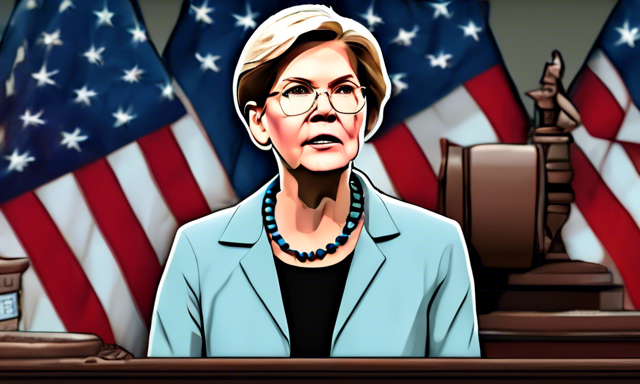The Impact of Senator Marshall’s Withdrawal on the DAAMLA Bill
Senator Roger Marshall recently made the decision to withdraw his support for the Digital Asset Anti-Money Laundering Act (DAAMLA), a bill he co-authored with Democratic Senator Elizabeth Warren. This move, which occurred on July 24, represents a significant shift in the U.S. legislative landscape and has wide-reaching implications for the proposed legislation that aims to tighten anti-money laundering (AML) rules for the cryptocurrency industry.
Senator Marshall’s Disassociation from DAAMLA
As Senator Marshall distanced himself from the DAAMLA bill, he left behind a group of 18 senators who continue to support the proposed legislation introduced back in December 2022. The bill’s primary objective is to enforce strict AML and Know Your Customer (KYC) regulations on digital asset service providers, including miners, validators, and decentralized wallet providers.
- Marshall’s withdrawal from the bill
- Leaves 18 senators backing DAAMLA
- The purpose of the DAAMLA bill
- Imposition of rigorous AML and KYC regulations
- On digital asset service providers
- Include miners, validators, and decentralized wallet providers
The Controversy Surrounding the DAAMLA Act
While the DAAMLA bill aims to curb the illicit use of cryptocurrencies by subjecting the crypto sector to existing financial regulations like the Bank Secrecy Act, it has encountered significant opposition from industry insiders. Critics argue that the bill’s provisions could hinder innovation and drive the crypto industry overseas due to excessive regulation.
- Industry opposition to DAAMLA
- Fear of stifling innovation
- Potential negative impact on the industry
- Consequences of overregulation
- Supporters of DAAMLA
- Advocate for curbing illicit crypto activities
- Believe in the need for stricter regulations
Senator Warren’s Commitment to the DAAMLA Effort
Despite Senator Marshall’s withdrawal, Senator Warren remains steadfast in her support for the DAAMLA Act as part of her broader anti-crypto agenda. Her advocacy for stringent AML regulations and criticisms of the crypto industry’s environmental and national security risks highlight her commitment to the bill’s objectives.
- Senator Warren’s persistence
- Continued promotion of DAAMLA
- Part of building an “anti-crypto army”
- Divergence in political positions
- Contrast between Senator Warren and former President Trump’s pro-crypto stance
- Rise of pro-crypto policies within the Republican Party
The Ongoing Debate Over Crypto Regulation
As the political landscape around crypto regulation continues to evolve, with conflicting viewpoints within the Democratic and Republican parties, the future direction of regulatory frameworks remains uncertain. While Senator Warren and her allies push for stricter regulations to address perceived risks, industry advocates and some politicians advocate for a more balanced approach that supports innovation without compromising security.
- Uncertainty in crypto regulation
- Conflicting positions within political parties
- Call for balanced regulation
- Ensuring innovation and security
Hot Take: Navigating the Crypto Regulatory Landscape
As the debate over the DAAMLA bill and broader crypto regulation intensifies, staying informed and engaging with policymakers becomes crucial for all stakeholders in the industry. Understanding the implications of proposed legislation, advocating for balanced and effective regulations, and collaborating with policymakers can help shape a regulatory environment that fosters innovation while addressing legitimate concerns around illicit activities.





 By
By
 By
By
 By
By
 By
By
 By
By
 By
By